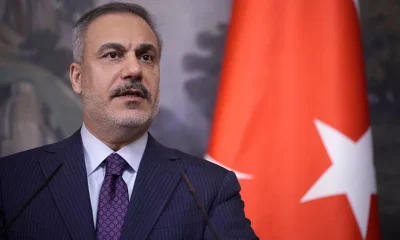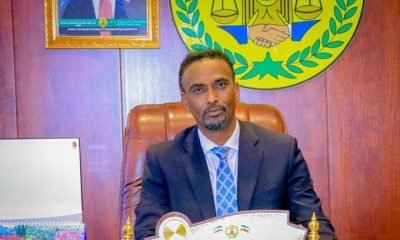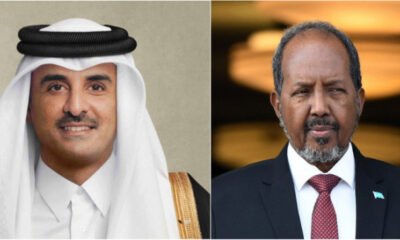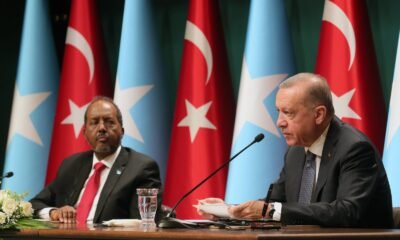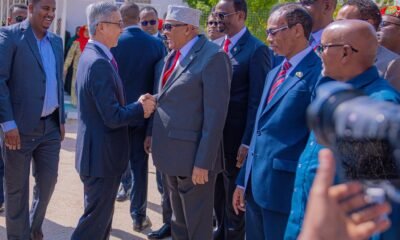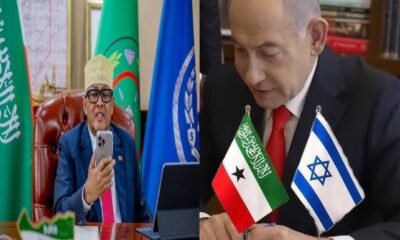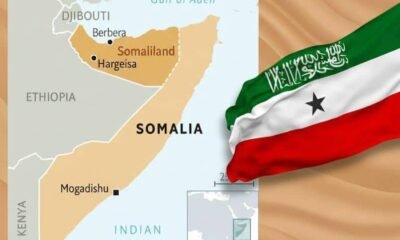Top stories
Red Sea Diving Tour Ends in Tragedy as Boat Sinks, Leaving 16 Missing
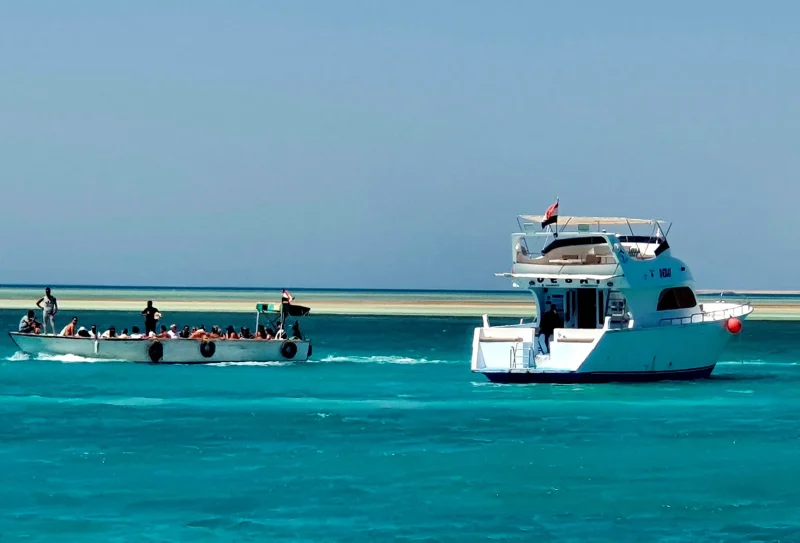
Egyptian authorities launched an extensive search operation Monday after a tourist boat sank off the country’s Red Sea coast, leaving 16 people missing. The incident occurred during a diving trip aboard the luxury yacht Sea Story, which had departed Sunday from Port Ghalib Marina near Marsa Alam.
The boat, carrying 44 people, capsized early Monday morning. Authorities confirmed that 28 individuals had been rescued, while four Egyptians and 12 foreign tourists remained unaccounted for.
A distress signal from the Sea Story was received at 5:30 a.m. local time, prompting the immediate deployment of search and rescue teams. Survivors were rescued by nearby vessels, with some requiring evacuation by military aircraft for urgent medical attention. Others were taken aboard a military frigate for transport back to shore.
Red Sea Governor Maj. Gen. Amr Hanafi said the search continued Monday, involving military aircraft and naval units, while survivors were receiving medical care.
The cause of the accident remains under investigation. Authorities noted that the boat had undergone a routine inspection in March and was licensed to operate through the year.
However, the Egyptian Meteorological Authority had issued warnings over the weekend about high seas in the Red Sea, cautioning against maritime activity on Sunday and Monday. It is unclear whether the yacht’s operators were aware of or heeded these advisories.
Authorities have not yet confirmed the nationalities of those still missing. The Sea Story, equipped for multi-day diving excursions, was scheduled to complete its trip in Hurghada on Friday.
As rescue teams race against time to locate the missing, the tragedy underscores the risks of operating in challenging weather conditions and raises questions about maritime safety protocols in the region.
Egypt’s Red Sea coast is a global hotspot for diving tourism, drawing enthusiasts to its coral reefs and marine biodiversity. While the industry is a key economic driver, accidents like this raise concerns about safety standards and emergency preparedness.
Further updates are expected as authorities continue their investigation and search efforts.
Somaliland
Calls to Bomb Somaliland Trigger Historic Warning

Somalia Revives 1988 Rhetoric: Somaliland Condemns Somalia’s Bombing Threats, Citing 1988 Genocide and Violations of International Law.
Somaliland has issued a sharp diplomatic warning after senior Somali officials openly called for military attacks on its territory, reviving rhetoric that many Somalilanders associate with one of the darkest chapters in their history.
In a statement released this week, the Ministry of Foreign Affairs of the Republic of Somaliland condemned remarks by Somalia’s Minister of Defense, Ahmed Moallim Fiqi, who urged Arab countries — particularly Saudi Arabia — to bomb Somaliland “as they did in Yemen.” Hargeisa said the comments violate international law and the United Nations Charter and amount to incitement of war.
For Somaliland, the language is not abstract. Officials drew a direct parallel to 1988, when the Siad Barre regime hired foreign pilots and mercenaries to bombard Hargeisa and Burao, killing 500 of thousands of civilians in what is widely documented as genocide against the Isaaq population. The reference has struck a nerve across Somaliland, where collective memory of the air raids remains central to national identity.
The Foreign Ministry said the threats underscore why Somaliland remains united in defending its sovereignty, just as it did during the SNM-led resistance of the late 1980s. That uprising ultimately led to Somaliland’s withdrawal from the failed union and the restoration of its independence in 1991.
Hargeisa also dismissed Mogadishu’s threats as hollow, noting that Somalia remains heavily dependent on international aid and has failed for more than two decades to fully secure its own capital from Al-Shabaab. Recent Somalia threats against Israel — following Israel’s recognition of Somaliland — were described by officials as further evidence of political desperation rather than strategic capacity.
Adding to tensions, Somaliland pointed to Turkey’s recent delivery of military equipment to Mogadishu, warning that external militarization risks emboldening reckless rhetoric in an already fragile region.
For Somaliland, the message is clear: calls to repeat the crimes of 1988 will not intimidate a society that survived them. Instead, officials argue, such statements reinforce Somaliland’s case as a stable, self-governing state — and highlight Somalia’s continued struggle as one of the world’s most enduring failed states.
The Ghost of Sovereignty: Mogadishu’s Hollow Claim Over Somaliland Exposed
Middle East
Iran Bleeds as the World Watches: Over 500 Dead, Regime Tightens Grip

Iran Protest Death Toll Surpasses 500 as Trump, Israel Signal Escalating Pressure on Tehran.
Iran’s protest movement has entered its deadliest phase yet, with rights groups reporting that more than 500 people have been killed as security forces intensify a nationwide crackdown. According to the U.S.-based Human Rights Activists News Agency, at least 538 deaths have been documented so far — the vast majority protesters — alongside more than 10,600 arrests. The group warns the true toll is likely higher as Iran enforces near-total internet blackouts and cuts international phone lines.
The numbers point to a regime choosing force over compromise. What began as economically driven unrest has evolved into a direct challenge to clerical rule, met with mass detentions, live fire, and systematic information suppression. Tehran has released no official casualty figures, a familiar tactic during moments of internal crisis.
International pressure is now rising in parallel. President Donald Trump is reportedly weighing options ranging from new sanctions and cyber operations to more direct military measures. Israeli Prime Minister Benjamin Netanyahu added to the pressure by declaring that Israel hopes the “Persian nation will soon be freed from the yoke of tyranny,” a statement that openly frames the unrest as a liberation struggle rather than a domestic disturbance.
Meanwhile, exiled crown prince Reza Pahlavi has stepped forward, signaling readiness to return and oversee a political transition — a move that will further alarm Iran’s leadership, which views alternative centers of authority as existential threats.
The scale of deaths, the regime’s information blackout, and the growing chorus of external voices suggest Iran is approaching a decisive moment. Whether the protests collapse under repression or fracture the system from within may determine not just Iran’s future, but the balance of power across the Middle East.
Top stories
Trump Says Taiwan’s Fate ‘Up to Xi,’ Sparking Alarm Over U.S. Commitment
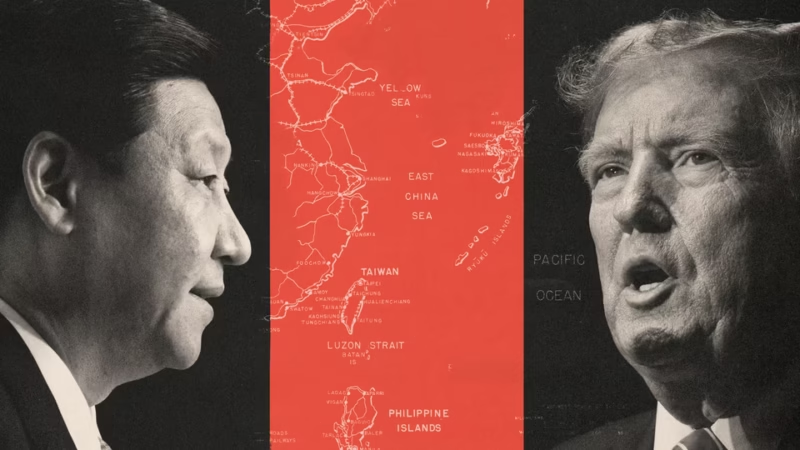
Trump: “It’s Up to Xi” on Taiwan but U.S. Would Be “Very Unhappy” With Change to Status Quo.
President Donald Trump has drawn fresh controversy by saying that Chinese President Xi Jinping ultimately decides what China does regarding Taiwan — effectively placing Taiwan’s future “up to him,” though he warned he would be “very unhappy” with any change to the status quo. Trump made the comments in an interview with The New York Times published Thursday, framing Taiwan’s situation as fundamentally Beijing’s decision and distinguishing it from U.S. actions in Venezuela.
Trump emphasized that Taiwan does not pose the same kind of direct threat to China that Venezuela’s government, in his view, posed to the United States, and expressed confidence that Xi would refrain from military action during his presidency, which runs through 2029. “He may do it after we have a different president, but I don’t think he’s going to do it with me as president,” Trump said.
The remarks prompted concern in Taipei and among U.S. allies, as they appeared to defer to Xi’s judgment on Taiwan’s fate and undercut longstanding U.S. strategic ambiguity about defending the self-governing island. China reacted by reiterating that Taiwan is an “inalienable part” of its territory and a purely internal matter that brooks no external interference.
While Trump signaled opposition to any forceful change in Taiwan’s status, his phrasing — that the decision rests with Xi — has raised fears in Washington, Taipei and allied capitals about the strength of U.S. deterrence and how Taiwanese security fits into broader U.S.–China strategic competition.
Top stories
China Skips Mogadishu as Somalia’s Isolation Deepens After Somaliland Shock

China’s Top Diplomat Postpones Somalia Visit, Citing Security Concerns, Continues Africa Tour in Tanzania.
China’s top diplomat, Wang Yi, has postponed what would have been a rare and symbolically important visit to Somalia, a move that quietly underscores Mogadishu’s growing diplomatic vulnerability amid shifting regional dynamics.
The visit — which would have been the first by a Chinese foreign minister to Somalia since the 1980s — was expected to bolster the Somali government at a delicate moment. Israel’s recent recognition of Somaliland has weakened Mogadishu’s diplomatic position, while relations with Washington have sharply deteriorated following the U.S. decision to suspend assistance benefiting Somalia’s federal government over allegations of aid misuse.
Officially, Somalia’s foreign ministry said the reason for Wang’s postponement would be clarified later. But intelligence-linked sources indicate security concerns in Mogadishu were the decisive factor, with unconfirmed threats reportedly contributing to Beijing’s decision. China’s foreign ministry declined to comment, maintaining its characteristic silence on sensitive security matters.
The postponement is notable not just for what it says about Somalia’s internal stability, but for what it reveals about China’s strategic calculus. Wang’s annual New Year Africa tour is tightly choreographed around trade routes, infrastructure access, and long-term resource security. In that context, Beijing appears unwilling to take even symbolic risks in a capital it views as unstable.
Instead, Wang arrived in Tanzania on Friday for a two-day visit focused on strengthening economic and diplomatic ties. Earlier in the week, he met Ethiopian Prime Minister Abiy Ahmed, pushing deeper cooperation in infrastructure, green industry and the digital economy. Lesotho is next on his itinerary before the tour concludes on January 12.
The contrast is stark. While Beijing deepens engagement with relatively stable and strategically positioned African states, Somalia is left waiting — diplomatically exposed, facing U.S. pressure, and increasingly overshadowed by Somaliland’s rising international profile.
For Mogadishu, the message is uncomfortable but clear, global powers prioritize predictability and security. Until Somalia can offer both, even long-anticipated diplomatic milestones can vanish overnight.
China Tightens Grip as Wang Yi Meets Abiy, Heads to Mogadishu
Top stories
Trump Signals Hard Power Play Over Greenland
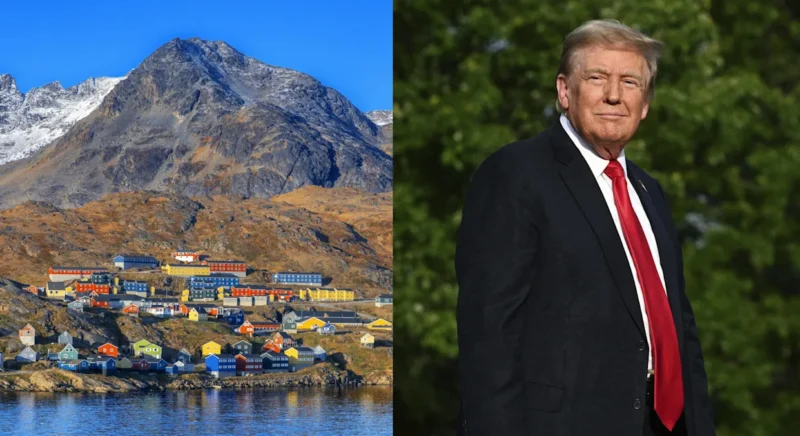
President Donald Trump has sharpened his rhetoric over Greenland, declaring that the United States will “do something on Greenland whether they like it or not,” framing the Arctic territory as a frontline in great-power competition with Russia and China.
Speaking at the White House while hosting oil executives to discuss Venezuela, Trump argued that failure to act would allow Moscow or Beijing to gain a strategic foothold. “We’re not going to have Russia or China as a neighbor,” he said, presenting U.S. control of Greenland as a national security imperative rather than a diplomatic option.
Trump has repeatedly floated two paths: purchasing Greenland from Denmark or, if necessary, using force. While he insisted he prefers a deal “the easy way,” he warned that Washington could pursue “the hard way” if negotiations fail. Notably, when asked how much money it would take to secure Greenland’s consent, Trump declined to give a figure, signaling that the issue may no longer be primarily transactional.
The response from Greenland and Denmark has been unequivocal. Greenland’s representative in Washington, Jacob Isbosethsen, stressed that the territory is not for sale and belongs to its people. European allies have echoed that stance, warning that any move undermining sovereignty would strain transatlantic relations.
On Capitol Hill, resistance cuts across party lines. Senior Republicans and Democrats alike dismissed the idea of acquiring Greenland, with lawmakers emphasizing existing alliances and long-standing cooperation. House Speaker Mike Johnson downplayed any suggestion of military action, saying Congress is not considering such a move.
Yet the administration’s message remains deliberately ambiguous. Vice President JD Vance urged allies to take Trump “seriously,” highlighting Greenland’s importance to missile defense and Arctic security. With Secretary of State Marco Rubio set to meet Danish and Greenlandic officials next week, diplomacy may resume — but under clear pressure.
The bigger signal is strategic. After Venezuela, Trump is projecting a doctrine that prioritizes control, deterrence, and speed over consensus. Greenland is no longer just an Arctic island. It is becoming a test case for how far the United States is willing to go to redraw the map of influence in a rapidly polarizing world.
Russia-Ukraine War
Moscow Threatens to Strike British and French Forces in Ukraine

RED LINE DRAWN — Russia Warns Western Troops in Ukraine Would Be “Legitimate Targets” as UK and France Plan Post-Ceasefire Force.
Russia has issued its bluntest warning yet to Europe, declaring that any Western troops deployed to Ukraine would be treated as “legitimate combat targets,” a sharp escalation in rhetoric that underscores how fragile — and potentially explosive — any future ceasefire could be.
The threat came hours after Britain and France unveiled plans for a multinational force to deploy to Ukraine if hostilities pause. Meeting in Paris, leaders of the so-called “coalition of the willing” outlined a framework that could see thousands of European troops operating on Ukrainian soil to help secure airspace, protect maritime routes and assist in rebuilding Ukraine’s armed forces. French President Emmanuel Macron openly floated the idea of deploying French troops, while British Prime Minister Keir Starmer said the initiative would establish a legal basis for long-term Western military involvement.
Moscow’s response was immediate and unforgiving. In a statement, Russia’s Foreign Ministry warned that Western military units, infrastructure or depots in Ukraine would constitute “foreign intervention” and pose a direct threat to Russian security. Any such presence, it said, would fall squarely within the Russian military’s list of lawful targets. The ministry went further, branding the European initiative a dangerous “axis of war” that risks dragging the continent into a deeper, costlier confrontation.
The language matters. For the first time, the Kremlin is explicitly signaling that a post-ceasefire Western presence would not be treated as peacekeeping, but as an extension of the battlefield itself. That framing narrows the diplomatic space and raises the stakes for European capitals weighing how far they are willing to go to guarantee Ukraine’s security.
Russia continues to argue that its 2022 invasion was a pre-emptive move to stop NATO’s eastward expansion and prevent Ukraine from becoming a Western military outpost. It has long insisted that the stationing of foreign troops in Ukraine is a non-negotiable red line. Ukraine and its allies counter that Moscow’s real aim is territorial conquest and long-term domination, pointing to Russia’s occupation of nearly 20 percent of Ukrainian territory.
The United States has drawn its own limits. Washington has ruled out sending American troops but has voiced support for security arrangements designed to deter future Russian attacks. That gap — European ambition paired with American restraint — is now shaping a dangerous gray zone.
At its core, the dispute exposes the central paradox of any Ukraine ceasefire: Kyiv wants guarantees strong enough to prevent another invasion, while Moscow sees those same guarantees as provocation. Russia’s warning suggests that unless this contradiction is resolved, even “peace” could come with the constant risk of a wider European war.
Middle East
Iran Shuts Down Internet as Deadly Crackdown Fails to Stop Nationwide Protests
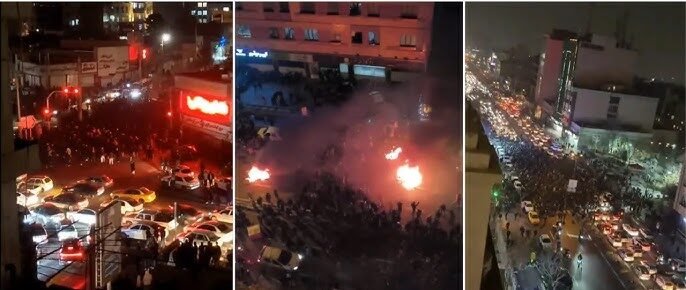
BLACKOUT & BLOOD — Iran Pulls the Plug as Protesters Defy Khamenei.
Iran’s government has imposed a nationwide internet shutdown as protests continue to spread despite a violent crackdown that rights groups say has killed dozens, exposing deep fractures inside the Islamic Republic and growing fear at the top of the regime.
Demonstrations erupted again Thursday in Tehran and multiple provincial cities, even as security forces intensified their response. Videos posted before the blackout showed shops shuttered in Tehran’s historic bazaar, a powerful signal of unrest in a country already reeling from soaring inflation and a collapsing currency.
What began as protests over economic hardship has now morphed into a direct political challenge. Crowds in Tehran, Mashhad, Isfahan and Kermanshah were heard chanting slogans against Supreme Leader Ayatollah Ali Khamenei — a red line rarely crossed in the Islamic Republic.
By early evening, monitoring group NetBlocks confirmed that Iran had cut off internet access nationwide, a tactic long used by authorities to isolate protesters, slow mobilization and prevent images of violence from reaching the outside world.
The crackdown has been brutal. Amnesty International said security forces have fired live ammunition, metal pellets and tear gas at largely peaceful demonstrators, while beating and arbitrarily arresting hundreds. The Hengaw Human Rights Organization reported at least 42 people killed so far, including six children. Families of victims, Amnesty said, have been threatened into silence, with officials warning of secret burials if they refuse to cooperate.
Inside the government, the response has been fractured. President Masoud Pezeshkian has struck a conciliatory tone, urging dialogue, while hard-liners have vowed zero tolerance. Iran’s judiciary chief warned this week there would be “no leniency” for anyone deemed to be aiding the regime’s enemies.
The unrest is unfolding under growing international pressure. U.S. President Donald Trump has repeatedly warned Tehran that further killings could trigger American intervention — a threat that Iranian leaders are taking seriously after Washington’s recent capture of Venezuela’s Nicolás Maduro.
For now, neither side is backing down. The streets remain tense, the internet is dark, and Iran’s leadership faces a dangerous dilemma: escalate the violence and risk foreign intervention, or ease repression and risk losing control.
Top stories
Two People Shot by Border Patrol Agent in Portland

ANOTHER CITY, ANOTHER GUNFIRE — Border Patrol Shoots Two in Portland Amid ICE Backlash.
Two people were shot and wounded by a U.S. Border Patrol agent in Portland, Oregon, on Thursday, in what federal officials again described as an act of “self-defense” during a targeted vehicle stop — the latest in a string of violent encounters linked to the Trump administration’s expanded immigration enforcement.
Portland police said officers responded shortly after 2:15 p.m. to reports of gunfire in the 10200 block of Southeast Main Street. Minutes later, a second call came from several miles away near Northeast 146th Avenue and East Burnside Street, where a man reported being shot and asked for help. Officers found both a man and a woman suffering from apparent gunshot wounds and rushed them to a hospital. Their conditions have not been released.
Authorities later determined that both injuries stemmed from an encounter involving federal agents.
The Department of Homeland Security said Border Patrol agents were conducting a “targeted vehicle stop” aimed at a passenger described as a Venezuelan national allegedly tied to the transnational Tren de Aragua criminal network. DHS spokesperson Tricia McLaughlin claimed the driver — also alleged to be affiliated with the gang — attempted to run over agents with the vehicle.
“Fearing for his life and safety, an agent fired defensive shots,” McLaughlin said. The vehicle then fled the scene with both occupants inside.
Law enforcement sources told NBC News that the car, a red Toyota, struck one of the agents as it attempted to escape, prompting gunfire. The wounded individuals were identified as a 33-year-old man and a 32-year-old woman.
The shooting comes just one day after a similar and far more deadly incident in Minneapolis, where Renee Nicole Good, a U.S. citizen and mother, was shot and killed by an ICE officer during an enforcement operation. In both cases, DHS used nearly identical language, claiming the suspects “weaponized” their vehicles.
That framing has drawn sharp criticism. Minneapolis Mayor Jacob Frey flatly rejected DHS’s account of the earlier shooting, calling it “bulls—,” while witnesses said Good appeared to be fleeing when she was shot. A New York Times video analysis later raised further doubts about the official narrative.
In Portland, officials moved quickly to urge calm — but condemnation followed.
“We are still in the early stages of this incident,” Police Chief Bob Day said, acknowledging the “heightened emotion and tension” following the Minneapolis killing. The FBI has taken over the investigation, describing the case as an “assault on federal officers,” while confirming that the two people shot had fled before seeking medical care.
Portland Mayor Keith Wilson called for a halt to ICE operations in the city until the investigation is complete. “Portland does not respond to violence with violence,” he said. “We respond with clarity, unity, and a commitment to justice.”
The Multnomah County Board of Commissioners was more direct, saying the incident underscored what they called a pattern of fear and force. “Enough is enough,” the board said. “The terror and violence ICE is causing in our neighborhoods must end now.”
With Minneapolis, Portland, and other cities now on edge, the question is no longer whether the immigration crackdown will spark unrest — but how many more confrontations it will take before Washington is forced to reckon with the consequences.
-

 Analysis10 months ago
Analysis10 months agoSaudi Arabia’s Billion-Dollar Bid for Eritrea’s Assab Port
-

 Opinion17 years ago
Opinion17 years agoSomaliland Needs a Paradigm Change: Now or Never!
-

 Interagency Assessment4 weeks ago
Interagency Assessment4 weeks agoTOP SECRET SHIFT: U.S. MILITARY ORDERED INTO SOMALILAND BY LAW
-
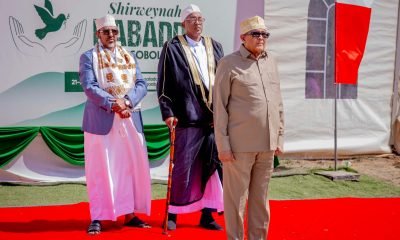
 Somaliland3 months ago
Somaliland3 months agoSomaliland Recognition: US, UK, Israel, and Gulf Bloc Poised for Historic Shift
-

 EDITORIAL1 year ago
EDITORIAL1 year agoDr. Edna Adan Champions the Evolving Partnership Between Somaliland and Ethiopia
-

 ASSESSMENTS10 months ago
ASSESSMENTS10 months agoOperation Geel Exposes the Truth: International Community’s Reluctance to Embrace Somaliland as a Strategic Ally
-
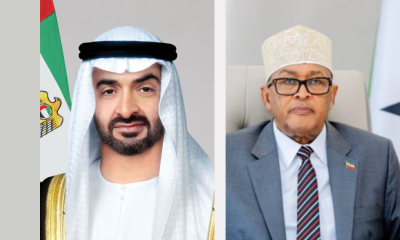
 Somaliland12 months ago
Somaliland12 months agoSomaliland and UAE Elevate Ties to Comprehensive Strategic Partnership
-
Top stories2 years ago
Ireland, Norway and Spain to recognize Palestinian state


